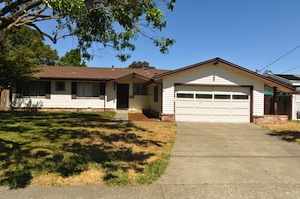 When it comes to real estate investing, there are no guarantees that you will be successful. That's just the cold, hard truth of it and it shouldn't come as any surprise. You run the risk of wasting precious time and losing money with every deal that you undertake. That said, there are some things that you can do to reduce losses and ensure your success. Here are 3 questions to ask yourself before investing in a property.
When it comes to real estate investing, there are no guarantees that you will be successful. That's just the cold, hard truth of it and it shouldn't come as any surprise. You run the risk of wasting precious time and losing money with every deal that you undertake. That said, there are some things that you can do to reduce losses and ensure your success. Here are 3 questions to ask yourself before investing in a property.
What do I want to achieve as a property investor?
The answer to this question really all depends upon where you want to end up in the next 5 or 10 years with your investments. Often, people just starting off in real estate investing haven't got a clear picture of what they want to accomplish. For some, the idea is to create a retirement income. Others dream of becoming financially independent. Keep in mind that building up a solid rental income takes time and one property probably isn't always enough.
What property investment strategy will I use?
There are several strategies that can be implemented for property investments. The first is a buy and hold technique. This simply means purchasing a property, doing a minimal amount of work on it and then renting it out for a long period of time. Another technique is to purchase a distressed property. In this case, you must completely renovate it and then rent it out or sell it for a profit. Another option is to purchase a large home and divide it into smaller units. Each unit can then be rented out in order to collect multiple rent payments each month. There is no one-size-fits-all strategy. You must determine which one best suits your skill levels and which will help you reach your long-term goals.
How will I fund my investment?
If you've got cash reserves, you may be tempted to put that money into purchasing and remodeling in order to avoid debt. One of the drawbacks to this type of funding method is that you could lose everything. Real estate investing is not, by any means, a 100% secure investment. At the same time, taking out a mortgage with the idea that you'll always have a renter in place to cover the payment may not be the best idea either. Another option is a hard money loan, which is much easier and faster to obtain than traditional bank loans. Take a good, hard look at your financial position and where you want to end up in the future. Only you can determine what is best for you when it comes to funding your property investments.
If you would like more information about investing in properties, contact us. We'll be happy to answer any questions you have about the process.











